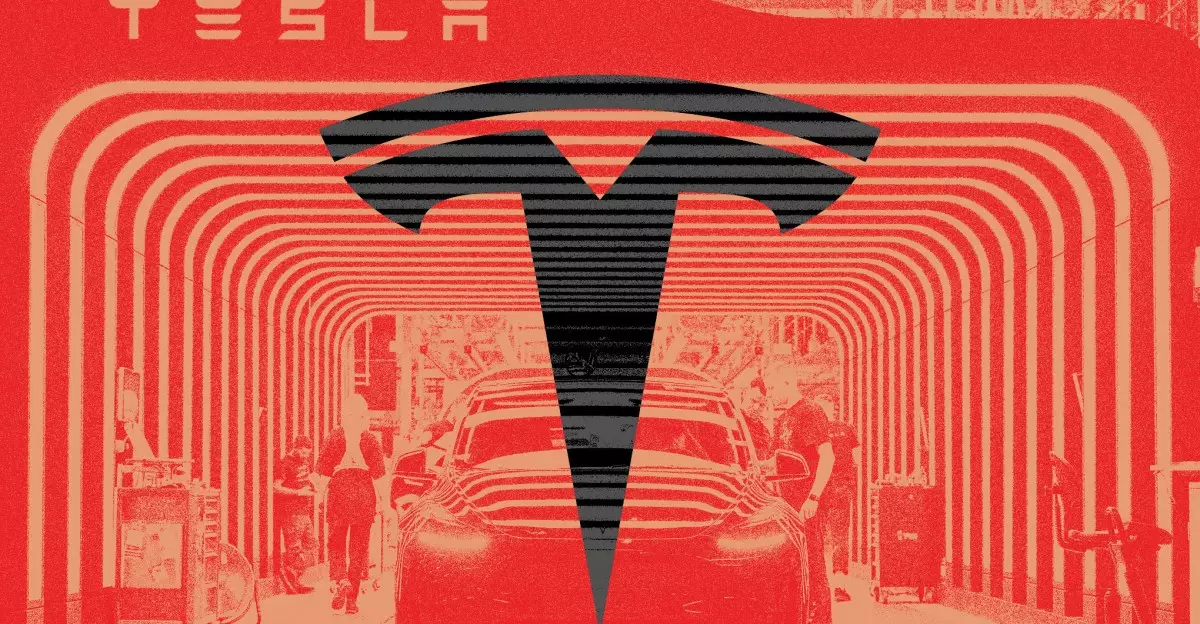Tesla, the pioneering electric vehicle (EV) manufacturer, has experienced a significant downturn in its sales within Europe, shedding almost 50% of its market presence in a single month. This staggering drop, as documented by the European Automobile Manufacturers Association, has sent shockwaves through the automotive industry, raising serious questions about the sustainability and future direction of the Tesla brand. While the overall demand for battery-electric vehicles surged by over 26% in the same period, Tesla’s numbers fell flat with just 7,261 newly registered vehicles in April—a dramatic slump compared to the previous year.
This situation appears even more disheartening when considering that the company had recently rolled out an updated version of its flagship Model Y, a launch expected to invigorate sales and draw in new buyers. Instead, the anticipated revival has fallen short, highlighting a worrying trend for a brand that once epitomized innovation and market leadership in the EV space.
Rising Competition and Consumer Sentiment
The continuously evolving EV landscape has seen intensified competition, not just from established automakers but also from nimble Chinese brands that are gaining traction in Europe. As brands like BYD and NIO continue to make aggressive inroads, Tesla appears to be losing its grip on a market where it once held dominion. The recent strategic missteps coupled with a perceived plateau in innovation have put Tesla at risk of becoming just another car manufacturer, rather than the revolutionary force it once was.
Compounding these challenges are Musk’s controversial political forays and decision-making processes. His associations with polarizing political figures and movements have alienated a portion of the consumer base, diminishing Tesla’s once stellar reputation. In an era when consumers prioritize ethical considerations and brand integrity, Tesla’s positioning has faltered.
Musk’s Controversial Maneuvering
Elon Musk’s political engagements, particularly his vocal support for Germany’s far-right party ahead of elections, have not been well-received. His willingness to sideline corporate governance for personal ideologies raises unsettling questions about the alignment of Tesla’s goals with those of its customer base. Musk’s promise to focus on company affairs is apt; however, his continuing engagement with political matters sends mixed messages to consumers.
According to a recent Reuters/Ipsos poll, public opinion has decidedly shifted against Musk, with 58% of respondents holding an unfavorable view of him. This discontent has inevitably spilled over into perceptions of Tesla, which ranked a disheartening 95th in a survey of top brands, a stark contrast to its former standings just four years ago. This decline suggests that the strategy of personal branding closely tied to company identity, which had initially served Musk well, may now be backfiring.
The Search for Solutions Amidst Challenges
In recent discussions, Musk conveyed optimism regarding a turnaround post-factory closures related to the Model Y’s production. Yet, as he fixates on projects involving artificial intelligence and autonomous driving, the immediate, pragmatic steps required to revitalize sales seem obscured. Investors and stakeholders are left wondering if the visionary that once drove innovation is perhaps too preoccupied with advanced technologies to rectify the company’s pressing operational challenges.
Tesla’s problems are deeply entrenched, and it is crucial for the leadership to regain focus. The necessity to innovate and rethink consumer engagement strategies cannot be overstated. As competitors advance and shape market perceptions, Tesla risks losing not only sales but also its identity as an industry leader. To bounce back, embracing a multifaceted approach that prioritizes customer needs, innovative offerings, and a return to core ethical branding will be essential.
Success in the automotive world, especially in the rapidly evolving landscape of electric vehicles, requires more than just a strong product; it demands a cohesive brand that resonates positively with its audience. Tesla’s future hinges on its ability to adapt and rejuvenate the very essence that once made it a household name in the realm of electric mobility.

